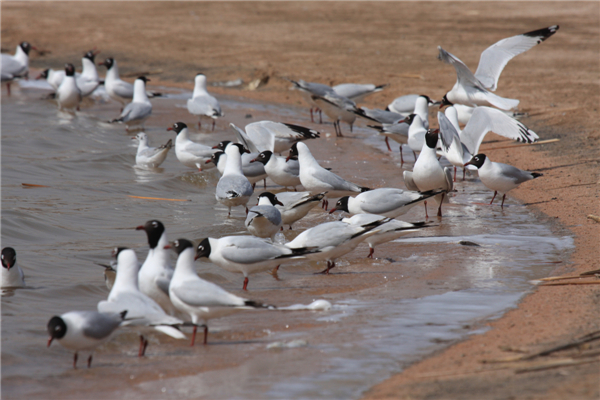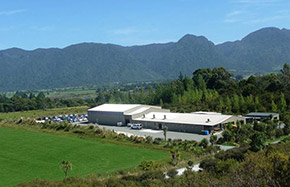Wetlands a world for birds
By Wang Kaihao (China Daily) Updated: 2013-05-07 08:10
 |
|
Relict Gulls, a rare migratory species visiting Nanhai Wetland Reserve, close to the center of Baotou city in the Inner Mongolia autonomous region. [Photo by Chen Xuegu / for China Daily] |
A hub for Relict Gulls
The Relict Gull, an endangered migratory species, only nests on sandy islands in the middle of lakes. It's estimated that there are only 16,000 of these birds worldwide, and approximately 60 percent of them inhabit the nearby Ordos Plateau. However, the area of Hongjian Nur, one of their major hubs, is shrinking because of a decrease in precipitation and an increase in water use in the surrounding urban areas. The lake covered 32.88 square kilometers in 2012, a drop of 50 percent in 20 years.
Relict Gulls were first seen in Nanhai in 2008 and roughly 5,000 arrived at the lake in 2010.
In 2012, ornithologist Liu Li arrived at Nanhai to study the gulls. Having spent five years at the Tokyo University of Agriculture and Technology, the Inner Mongolia native said wetland protection is more needed at home than in Japan.
"Relict Gulls could find a substitute nesting place here, but we must create similar circumstances to their previous habitats," he said, although he added that there have not been enough relevant studies to pinpoint specific migratory routes and living habits.
Baotou began a three-year-long Yellow River wetlands restoration project in 2011, reclaiming 133 hectares of wetland for Nanhai. The project involved building a number of islands in the middle of the lake. The protection station was given 100,000 yuan by the municipal government to buy the sand needed to build the islands, but although more than 1,000 gulls have nested on these islands, so far Relict Gulls have not been among them.
"Maybe we need to beg for more money to keep transforming the living environment?" said Miao. "Or maybe, they just won't come at all."
Adding to the problems, a cargo route bisects the wetlands. Although the road, first built in the 1990s, has not been upgraded to an asphalt surface, the noise has made the area close to the road a forbidden zone for birds.
"As the road was built before the promulgation of the reserve regulation, it is difficult to shut it down," said Yu.
"Nanhai is probably the last place belonging to nature in downtown Baotou," he said. "We can only try our best within our capacity and pray some Relict Gulls nest here. If so, it would be of great benefit for the wetland. It would help us to persuade higher-level decision makers to move the road."
- CEO calls for rules on e-sports development
- China to tighten securities trading rules for institutions
- China's top train maker receives order from India
- China shuts down 18 illegal live streaming apps
- Egypt announces new Chinese investments in textile
- China's central bank skips open market operations
- Media digest on Xiongan New Area plan
- China's new economic district Xiongan punishes property speculators


















